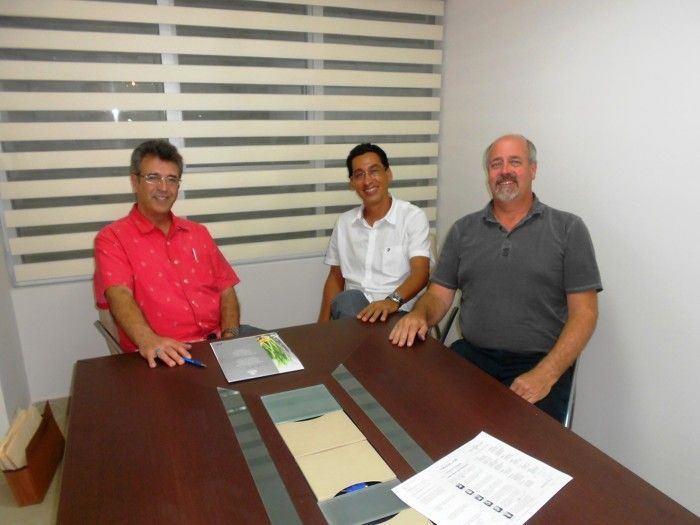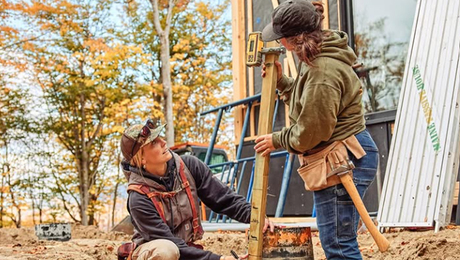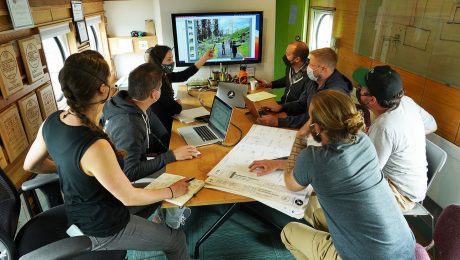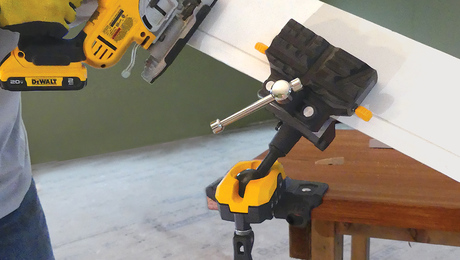
How do you feel when you see a fellow with little construction experience cutting a deep, wide swath through the local real-estate market selling new homes? I always felt a tinge of resentment and wonder. How and why? How can a guy (or gal) who knows half as much as I about home building do twice as well?
Over a lifetime, I have come to understand it. And enjoy it. It’s one of the few perks of getting older, humbler, and a trifle more observant. In the end, the hard-won soft skills are more solid assets than the technical skills that got you started in business in the first place.
I don’t recall when I first noticed it, or how it became so blatant that it finally smacked me like a 2×4 across the brow, but the ability to persuade people eventually becomes a tangible asset as solid as a brick.
It’s been years since my home-building business collapsed under the weight of an all-too-mighty recession, and I’ve made my living in related fields, cost-cutting for other developers, writing articles, teaching classes, doing commercial-property inspections, and even insurance-adjusting (a very lucrative field). But the one skill that has applied to all of it, I never learned intentionally. It’s what contractors do daily and get better at over time. It’s called negotiation.
Soft skills and hard dollars
Over the past few years, I have received a number of invitations to negotiate on behalf of others. A longtime acquaintance and major developer asked me to negotiate with a neighborhood group near Chicago, something I had become good at during years of developing affordable housing. Nobody wants it in their neighborhood, but I convinced them again and again. The negotiations succeeded, and the developer won the project. Even insurance-adjusting involves a great deal of tactful negotiation under stressful conditions, especially in major events such as superstorm Sandy (and I won’t comment about what it’s like to negotiate with New Yorkers). Then, a few months ago, an invitation came that changed the course of my life.
Another developer friend had gone to find his fortune in Latin America. Many do nowadays; the area is among the fastest growing in the world. This well-heeled businessman invited me to write up a project proposal in Spanish, my native language. I did, but what intrigued me much more than the beachfront development he invited me to describe was a sideline business he had found in satellite telecommunications, the implications of which were hugely profitable-the kind of numbers I’d never seen. Unfortunately, I know nothing about telecommunications, information technology, and satellites. But we talked as friends, and slowly, I learned more and more about the opportunity.
A few months passed, and he called me one Friday afternoon because the satellite deal had stalled. Negotiations had reached an impasse, and communication had broken down. The deal was on the verge of falling through, and he wanted my help as an interpreter. As we discussed his needs, though, it became apparent that simple translation wouldn’t do. The details emerging were not a matter so much of words as a clash of two businesses cultures. I found myself in Ecuador about 48 hours later negotiating a $25 million contract for satellite tracking devices with a federation of artisanal fishermen and their very tough, volatile, and mildly unscrupulous representatives.
That was two months ago. Today I sit in Miami International Airport waiting for a connecting flight back to Denver, my home port. The deal is almost done, and I am now a 15% partner in a Latin American telecommunications company, a business I know nothing about (although I’m learning quickly), in a part of the world I do know, but not very well. Thirty years of real-estate negotiation and daily relations with a breadth of people from salt-of-the-earth framers to fancy-pants financiers prepared me for the sort of work I am now doing: closing the deal.
And now I know why those successful guys that I used to deride for building homes without first acquiring calluses did so well. They had learned business skills, which include financial management and negotiations, before building a single thing. Building skills can make you a good builder, but business skills are what it takes to succeed in business-any business. Tedd Benson said it best in a recent “Tailgate” feature: “Some of the most important things we do in life, we do with no education.”
On the other hand, sometimes we’re getting an education and don’t even know it. Such was my experience in learning to negotiate. Many people I worked with described me as an excellent salesman-a description I found insulting, given that I hate salesmen. But it was true. It was a skill I learned from necessity. I like the concept of negotiator better than salesman, and I have actually studied it both academically and for certification. I believe it’s a good topic for this blog. We have already discussed financial management in several posts; the next series will focus on how to make a deal.
Fine Homebuilding Recommended Products
Fine Homebuilding receives a commission for items purchased through links on this site, including Amazon Associates and other affiliate advertising programs.

8067 All-Weather Flashing Tape

Reliable Crimp Connectors

Affordable IR Camera





























View Comments
Mr. Ruiz,
I too have learned (humbly) what you indicate here. Soft skills are just as (or more so) important than technical skills. Learning them is harder as many are simply ingrained as part of our personality. Technical skills are easier to impart and learn.
I wish you well on your new venture and look forward to your upcoming posts!
Renzo Cecchetto
Superstorm SALLY? Seriously, dude.
Marleyjune, thanks for the correction, dude, it's fixed! And Renzo, thanks for the comments.